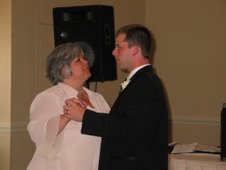Most of the authors in this section deal with the condition of women in Victorian era England. They seemed to hold to one of two very differing schools of thought on how women should be viewed or rather of how women in this period saw themselves.
Sarah Stickney Ellis view women as the moderator of the behavior of men. She says "how often has man returned to his home with a mind confused by the many voices, . . . he has stood corrected before the clear eye of woman . . . " (p. 557). She takes the position that women have great influence and should be well prepared to handle this role. I interpret her to mean that women have only to embrace their role as influencers of opinion in order to feel empowered. She does not see women as victims, rather as active participants in their lives.
On the other hand, Charlotte Bronte presents herself as being a victim. She says " . . . it is dreary work to look on and listen . . . and further that " . . . a private governess has no existence, is not considered as a living and rational being except as connected with the wearisome duties she has to fulfil." (p. 560). While I have no doubt that she feels unappreciated and disrespected, the underlying tone of her letter is one of being victimized.
Yes, it is certainly true that the laws in place at the time were unfair to women...most especially married women. Yet, most ot the women who write about unfair treatment in this section, Charlotte Bronte and Anne Bronte, and even Mary Ann Evans (George Eliot) are unmarried, rather than married woman. The only married woman that we heard from who was espousing the evils of the treatment of women was Caroline Norton, who was certainly trapped in a horrible marriage, yet we are given no information as to how she ended up in such a bad marriage.
As I have said before, as I finished reading these pieces I was reminded yet again of how even though things change...they remain the same. There will always be those who embrace their position or status in life, never seeing themselves being victimized by some unjust system...and there will always be those who feel victimized. Such is the way of the world.
Sunday, June 10, 2007
Subscribe to:
Post Comments (Atom)

3 comments:
I agree that the more things change, the more they stay the same. The arguments regarding the role of women can still be heard today, although great strides have been made. There were many differing opinions regarding the role of women in the 19th century. Some believed women to be intellectually inferior to men, and to that end, their education was limited to things like music, needlework, and drawing, you know, the really useful things that would make them more attractive to men. Ironically, they received no training to prepare them for their roles as wives and mothers. George Eliot, a rebellious woman, lived openly with a married man and vehemently disagreed that ignorant women made the best wives. Isabella Beeton to the rescue - she sought to educate women in all aspects of household management, from cooking to socializing. John Stuart Mill was a very forward thinking gentleman dedicated to societal progression and he advocated opportunities and equality for women. Like Mill, Sarah Stickney Ellis also wanted to improve society, but she thought it could be accomplished if wives bestowed the influence of goodness on their husbands, thereby shaping their moral character. Queen Victoria believed that the roles of men and women were separate and she criticized the fight for women’s rights calling it dangerous, unchristian, and unnatural. Then there were the middle-class Bronte sisters, who were relegated to the role of governess where they were ridiculed and disrespected. Charlotte Bronte observed that she would rather be a kitchen girl than a governess.
Wanda,
Good comments and observations on several diverse readings from the assignment. By spreading your attention across so many texts, though, you do not really enable yourself to dig very deeply or specifically into any of them. Thus this posting is not as successful as most of yours have been. I encourage you to focus on a single text (or perhaps two), even in the reading assignments that feature multiple authors and textual documents.
The Victorian era gave us a variety to pick and choose from when reading. For the most part, I feel that all the stories were influencing and touching, especially concerning the women writers.
The women were nurturers as well as victims. I am not married but I have been in relationships and that may have been the case with some of the female writers throughout this era. And even if they were not in a relationship maybe that had seen enough experiences to give readers like us a true sense of the effect of the Victorian age on the women.
I agree with Sarah Ellis that we are the comforters for a man after a hard day or an experience. Sometimes we can give them a sense of peace if they are going through confusion or a rough time. Unlike Ellis story, Norton was the one that touched me. Caroline Norton’s story had tears in my eyes while at the same time I was ticked off. She was in an unfortunate situation and it seems she had no way out. Her husband had all the rights even to the point of cheating on her and still walking away with everything. That ticked me off.
Post a Comment